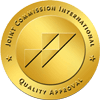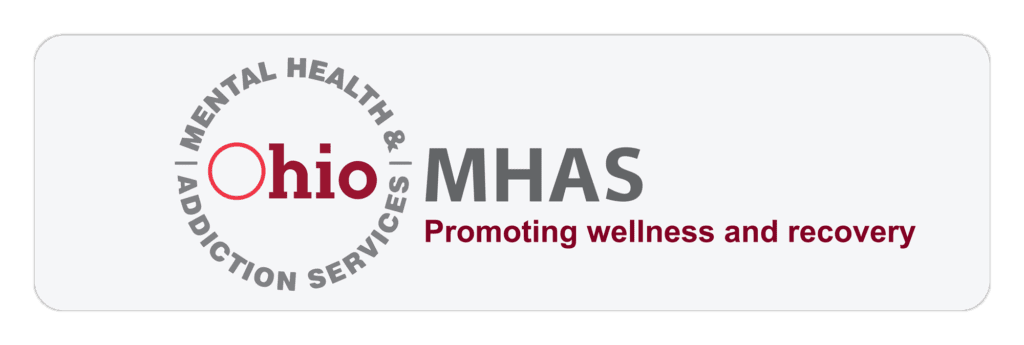According to the National Alliance on Mental Illness (NAMI), an incredible 1 in 5 Americans struggle with a mental health disorder. Given that the population of America sits at around 329 million, at least as of 2019, that’s about 65 million people struggle with this complex issue at any given time.
Now, consider addiction statistics. According to the 2017 NSDUH Annual National Report, 19.7 Americans suffered from a substance use disorder in 2017. Close to 8.5 million were classified as suffering from substance abuse disorder and at least one mental health disorder simultaneously.
These numbers make it clear that there is a connection between mental health and addiction recovery. Getting to know exactly what kind of connection exists, and how it can affect addiction treatment, is extremely important.
What Is Mental Illness?
Merriam-Webster defines mental illness as:
A broad range of medical conditions (such as major depression, schizophrenia, obsessive compulsive disorder, or panic disorder) that are marked primarily by sufficient disorganization of personality, mind, or emotions to impair normal psychological functioning and cause marked distress or disability and that are typically associated with a disruption in normal thinking, feeling, mood, behavior, interpersonal interactions, or daily functioning.
This is, naturally, the medical definition, which is unnecessarily complex and difficult for the average individual to understand. It’s also devoid of nuance – and mental illness can be a decidedly individual experience.
From a layman’s perspective, mental illness can be defined as any disorder or state of mind that impairs psychological functioning or causes suffering. From a medical perspective, this includes all of the aforementioned illnesses as well as some 300 other illnesses listed in the Diagnostic and Statistical Manual of Mental Disorders, 5th Edition, also known as the DSM-5. Most psychiatric experts use this guidebook to help identify, diagnose, manage, and treat patients struggling with mental illness.
It is important to note that you don’t necessarily need to meet the criteria for a disorder to be struggling with mental health. Your experiences are valid, and you deserve treatment just as much as someone with a full diagnosis.
Types of Mental Illness
Most mental illnesses fall into a few specific categories:
-
- Mood disorders have the defining factor of causing extreme mood disturbances, ranging from severe, suicidal depression to uncontrollable euphoria and loss of inhibition.Patients often struggle with sleep, appetite, and motivation, too. This category includes illnesses like depression, bipolar disorder, and dysthymia.
- Anxiety disorders cause patients to develop unreasonable fears about objects, people, places, experiences, or behaviors. Anxiety may manifest as a low and constant nervousness, or as extreme phobias, uncontrollable behaviors, and panic attacks. This category includes obsessive-compulsive disorder (OCD), generalized anxiety disorder (GAD), and panic disorder.
- Schizophrenia and other delusional disorders are defined by the experience of psychosis, meaning suffers see, hear, or smell things that aren’t really there. Delusional thoughts, false beliefs, and disorganized speech can also occur, and can be extremely debilitating or even disabling. This category includes conditions like Schizophrenia, Schizoaffective Disorder, and sometimes, severe Bipolar Disorder.
- Eating Disorders mostly affect people in high-performance sports, appearance-demanding careers, and young girls. Patients may willingly cut back calories or engage in self-induced vomiting, obsessing over their weight and preventing caloric intake. Or, they may feel an uncontrollable, obsessive need to eat instead. This category includes bulimia, anorexia, and overeating disorder (OD).
- Organic brain disorders, such as wet brain syndrome, Alzheimer’s Disease, and traumatic brain injury, can also cause mental illness symptoms. While they aren’t considered a true mental illness, they still require treatment – especially in the presence of an addiction.
- Personality disorders often appear as a persistent inability, or refusal, to understand self or others. This category includes paranoid, schizoid, schizotypal, antisocial, borderline, histrionic, narcissistic, avoidant, dependent and obsessive-compulsive personality disorders. Each “type” addresses a different set of symptoms stemming from maladaptive personality traits, many of which stem from past experiences of trauma.
How Addiction and Mental Illness Connect
Here’s what we know about addiction and mental health: having an addiction can lead to mental illness, and having an untreated mental illness may make you more likely to turn to drugs or alcohol to cope. Studies have repeatedly supported this as fact time and time again.
This isn’t to say that every person with a mental illness is doomed to become an addict, or that someone who is addicted is doomed to become mentally ill. In fact, most statistics show that only around half of people diagnosed with both a mental illness actually have a dual diagnosis of substance use disorder, too.
Mental illnesses like depression, anxiety, and obsessive-compulsive disorder can produce very difficult and challenging symptoms – and the world isn’t always the most patient and forgiving place for patients.
The truth is that many mental illnesses come with self-destructive behaviors while also making it difficult to be productive and relate to others. There is a tendency to either self-isolate or withdraw from society, losing access to much-needed support and the human connection we all crave. That, combined with mental health symptoms themselves, can leave someone in an incredible amount of pain.
The promise of relief, a temporary reprieve, or even just enough motivation to make it through another day at work through self-medication, can be incredibly alluring. It rarely starts out maliciously, but as soon as the person realizes how much better they feel, it becomes a negative coping mechanism.
Over time, the drug or alcohol use ends up worsening symptoms, rather than reducing them…causing the patient to use more and more in an effort to achieve relief. They are now dealing with an addiction as well as a mental illness.
Some drugs may also instigate mental illness, mostly as a result of their influence on the body. For example, methamphetamine and cocaine can cause psychosis directly, and over time, may lead to chronic anxiety, delusions, and panic. Opiates and benzodiazepines, both of which are depressants, can cause chronic depression, as can alcohol if used often enough.
Even the innocuous-seeming marijuiana may initiate psychosis for some patients. This is of special concern to teens under age 18.
And then, too, there is the experience of being addicted. Constantly having to fight for your next fix, forcing your body through continuous highs and lows, and going through withdrawal over and over again carries a steep mental toll. In the end, many addicts lose homes, jobs, children, loved ones, and all sources of support when their own behaviors become unmanageable.
Is it any wonder this type of experience is at least somewhat connected to the diagnosis of disorders such as depression?
Untreated Mental Health Disorders Impede Recovery
It only makes sense that a tumultuous life filled with constant highs and lows, stress, struggle, and loss can lead to someone developing a mental illness. Unfortunately, this is really just the beginning of an incredibly complex picture. The fact that every patient experiences both addiction and mental illness uniquely means that the whole patient must be considered in order to achieve long-term success.
Addiction and mental health diagnoses not only influence, but also directly depend on one another for longevity. In essence, treating a patient for addiction while ignoring the underlying mental illness will only allow the symptoms of the latter to grow and fester. Eventually, the patient will lose the ability to cope, making relapse all but inevitable or even guaranteed.
Similarly, it becomes virtually impossible to achieve effective treatment for patients with mental health disorders if they are still in active use. Drugs and alcohol impair emotional response and regulation; what might seem like improvement could melt right back into severe symptoms once they finally stop.
Dual Diagnosis Treatment Is a Must
You now understand how mental illness and substance abuse connect, and even why they should be treated separately. In fact, it’s safe to say that dual diagnosis and treatment is an absolute must.
Ultimately, treatment programs need to exhaustively search for evidence of a concomitant mental health disorder – and treat them, should they exist. Furthermore, this must happen within the same program in a parallel fashion. By identifying each problem, and developing a treatment plan that addresses the healing of both, patients can regain confidence and skills that help them recover fully for life.






